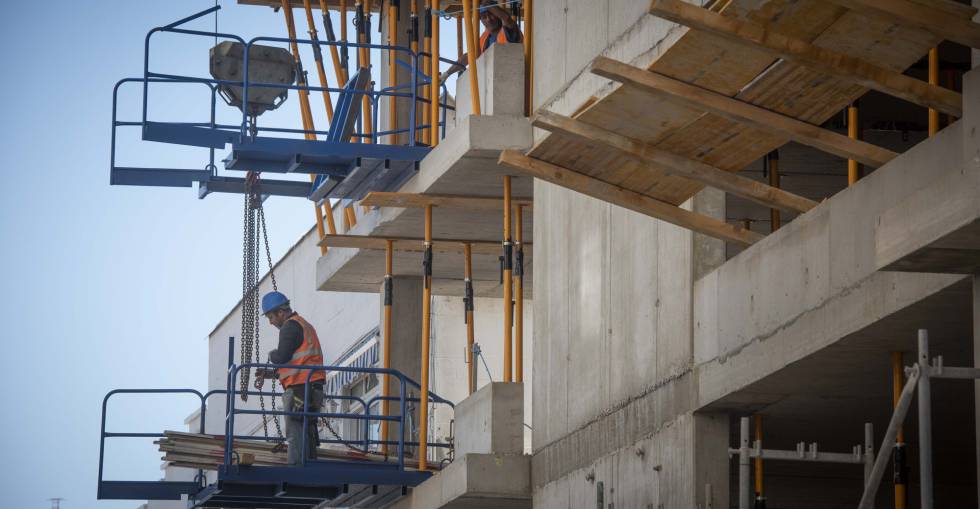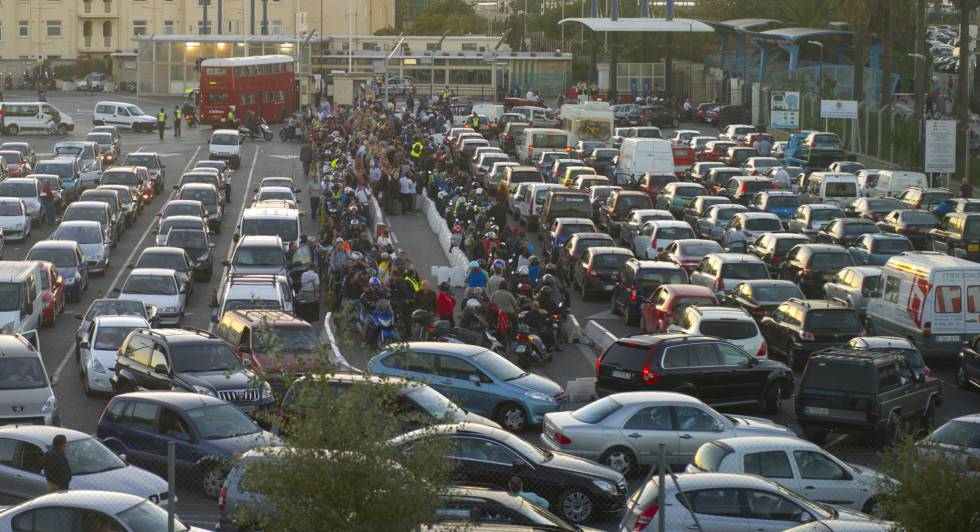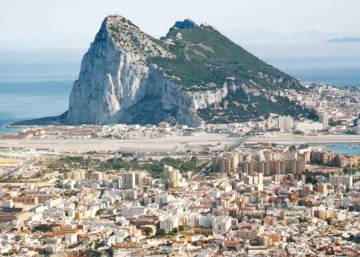What Brexit? More Spaniards getting jobs in Gibraltar despite UK’s departure
E-gaming and construction sectors are hiring cross-border workers in spite of doubts over impending break with the EU
Cádiz

Construction workers, last week in Gibraltar. MARCOS MORENO EL PAÍS
Imane Belghiti no longer fears Brexit. She stopped being scared after spending much of her working life under its menacing shadow. The 30-year-old publicist moved from Málaga to England in 2013 after deciding that her career was “going nowhere.”
Following the Brexit referendum in June 2016, she returned home but ended up working as a marketing manager for the e-gaming industry in the British Overseas Territory of Gibraltar, located on Spain’s south coast. Belghiti says she is not concerned about the possible effects of the UK’s upcoming break with the European Union, scheduled for March 2019.
Gibraltar remains willing to find solutions that do not cross our red lines
CHIEF MINISTER FABIAN PICARDO
And it looks like her feelings are shared by others: ever since the Brexit vote took place, the number of cross-border workers has been steadily rising, with a growth rate of 17%.
Belghiti is one of 1,221 Spanish residents to have found jobs in Gibraltar since June 2016, for a total of 8,374 cross-border workers in March 2018. And it is not the only upward trend registered by the Gibraltar Department of Employment, which only counts employees on fixed contracts. From December 2016 to December 2017, there was a 5.65% increase in cross-border workers of all nationalities, from 12,356 to 13,054 people. If only Spanish citizens are counted, that percentage rises to 11%, from 7,227 in December 2016 to 8,024 in December 2017.
The publicist from Málaga joined this group in early 2017, when she started working for the gaming multinational Lotoland.

“I sent my resume to several places, and they called me. First I was on a two-month contract, and then they offered me a fixed position,” she says. A job like hers can mean an annual salary of between €35,000 and €50,000.
By the time Belghiti started her new job, Jorge Moreno had already been working for nearly four years as a carpenter for the public construction company GJBS. For the 57-year-old from La Línea, this job was a lifesaver after setting up a family business that “went down the drain.” He earns around €1,400 a month, “when there are colleagues in the same category in Spain who make €800.”
Both workers were hired by two booming sectors of the Gibraltar economy: of all cross-border workers, 20% (around 2,700) work in construction and another 28% (around 3,700) for the entertainment industry.
Although the Brexit vote was a matter of concern in Gibraltar, where 95% of the population had voted to remain part of the EU, jobs do not seem to have been affected. Chief Minister Fabian Picardo said that this growth is due to the continued good health of the Gibraltar economy, which since Brexit has seen a positive balance of new companies in the financial services sector, insurance and online gaming.
Public works
Added to that is a series of new private and public works projects (housing, education and sports infrastructure) in a place where only 20 people are registered as unemployed out of a total workforce of 24,000.

Despite the good figures, there are lingering questions about the potential effects of Brexit, especially in connection with Spain’s veto right in EU negotiations. As Picardo puts it, the goodwill expressed by the Spanish government has yet to be tested on the ground. “Gibraltar remains willing to find solutions that do not cross our red lines,” he said.
“Caution” is a word that crops up often in conversation with Juan José Uceda, the spokesman for the Association of Spanish Workers in Gibraltar (ASCTEG). “[The governing Popular Party] is telling us to be calm, but the questions remain. The Brexit agreement is putting sovereignty issues ahead of people’s rights and ahead of what Gibraltar represents as an economic powerhouse in the south,” he said.
One of the issues that ASCTEG is most concerned about is healthcare coverage for cross-border workers. Right now, the European Health Insurance Card allows carriers to receive medical attention in Spain.
Picardo adds another longstanding issue: long lines at the border between Spain and Gibraltar. “We need to guarantee good traffic flows so that workers will have easy access to their jobs in the morning and back home at the end of the day.”
English version by Susana Urra.









































No hay comentarios:
Publicar un comentario